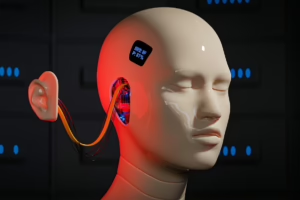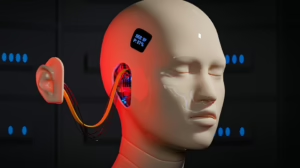Are You Ready for the AI Revolution? Join Our Course to Stay Ahead!
Introduction
Artificial Intelligence (AI) is not just a trend; it represents a shift that is reshaping industries, economies, and the very fabric of daily life. As innovations in AI technology accelerate, professionals across all fields must adapt to stay competitive. This article will explore the transformative nature of AI, outline the skills needed to thrive in an AI-driven world, and present our specialized course designed to equip you with the knowledge and tools necessary for the future.
The Rise of AI: A Historical Overview
Early Developments
The journey of AI began in the mid-20th century, with pioneers like Alan Turing and John McCarthy laying the groundwork. In the subsequent decades, AI experienced periods of both optimism and disillusionment, often referred to as “AI winters,” due to limitations in technology and funding. It wasn’t until the advent of powerful computing and vast data availability in the 21st century that the field began to gain real traction.
Current Landscape
Today, AI is ubiquitous, making headlines with advancements in machine learning, natural language processing, and robotics. Industries such as healthcare, finance, and transportation are leveraging AI to enhance efficiency, make data-driven decisions, and improve customer experiences. The global AI market is projected to surpass $600 billion by 2025, indicating the profound impact it is set to have on the world economy [modern_footnote_source].
Why Should You Care About AI?
Economic Impact
AI is not just a technological shift; it’s an economic one, too. According to McKinsey & Company, AI could add $13 trillion to the global economy by 2030 [modern_footnote_source]. This potential creates opportunities for those who are prepared but also presents challenges for those unwilling to adapt.
Job Market Transformation
The job market is expected to evolve dramatically due to AI. While automation may threaten certain jobs, it will also create new roles that require advanced skills. A World Economic Forum report indicated that over 85 million jobs might be displaced by AI, but 97 million new roles could emerge that are more suited to the new division of labor between humans and machines [modern_footnote_source].
Skills Needed in an AI-Driven World
Technical Skills
-
Data Literacy: Understanding data is crucial. Professionals must be able to interpret and utilize data effectively to make informed decisions.
-
Machine Learning: Familiarity with algorithms, neural networks, and data models is increasingly important across multiple sectors.
-
Programming Skills: Knowledge of programming languages such as Python, R, or Java is valuable for anyone looking to delve into AI.
Soft Skills
-
Critical Thinking: The ability to analyze problems from multiple angles and question outcomes is vital in an AI context.
-
Collaboration: Working effectively in interdisciplinary teams that include data scientists, ethicists, and domain experts is essential for successful AI integration.
-
Adaptability: As AI continues to evolve, professionals must embrace lifelong learning and be willing to adapt to new tools and processes.
The AI Course: Empowering You for the Future
To equip professionals with the needed skills and knowledge, we are excited to introduce our AI course, designed for individuals at all stages of their careers. Here’s what you can expect:
Course Overview
Our course comprises modules that address both technical and soft skills, ensuring a holistic understanding of AI.
-
Introduction to AI: Understand the fundamentals, history, and future potential of AI.
-
Data Handling and Processing: Learn how to collect, clean, and analyze data effectively.
-
Machine Learning Basics: Introduction to algorithms and how they work, including practical exercises.
-
Ethics in AI: Engage in discussions about the ethical implications of AI technologies and the balance between innovation and societal values.
-
Real-World Applications: Case studies from various industries showing how AI is being applied effectively.
-
Capstone Project: Apply what you’ve learned in a practical project tailored to your industry of interest.
Learning Formats
We offer multiple formats to suit your needs:
-
Online Courses: Flexible, self-paced learning modules accessible at any time.
-
Live Webinars: Interactive sessions with industry experts who share real-world insights.
-
Workshops: Hands-on experience focusing on practical skills.
Benefits of Joining Our Course
-
Expert Instructors: Learn from industry leaders with practical experience in AI applications.
-
Networking Opportunities: Connect with fellow professionals to share insights and collaborate on projects.
-
Certification: Gain a recognized certification that can enhance your professional profile and strengthen your résumé.
-
Ongoing Support: Access to a community of learners and experts for continuous learning and discussion even after course completion.
Conclusion: Don’t Get Left Behind
As AI technologies continue to advance, the question is not whether to engage with these changes, but how to prepare for them. Our course is designed to empower you to navigate this transformation confidently. Embrace the AI revolution and enhance your professional capabilities.
Join us today and take the first step toward positioning yourself at the forefront of an exciting future!
References
- McKinsey & Company. (2020). How AI could contribute to the global economy. Available Here.
- World Economic Forum. (2021). The Future of Jobs Report. Available Here.
By staying proactive and informed, you can turn the challenges of the AI revolution into opportunities for growth and success. Don’t wait any longer; enroll now!


























Add Comment